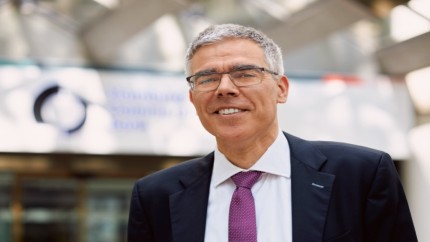July 2022 Germany is currently experiencing a supply recession. It's not demand that is crippling, but companies simply can't produce as much as they would like. As a result, the previous laws governing the emergence and overcome from recession have been suspended, writes Dr. Cyrus de la Rubia in a recent guest commentary for the Börsenzeitung.

Deutsche Lufthansa cancels thousands of flights due to staff shortages. The car industry reduces production of certain model series due to a lack of microchips. Bicycles are simply no longer available. And some restaurants are only open a few hours a day due to a lack of cooks and waiters. "These shortages are stressful for producers and consumers and a reflection that we are approaching a supply recession. It is not demand that is crippling, but companies simply cannot produce as much as they would like, because of geopolitical crises, Corona and because of an unfavorable demographic situation," the chief economist of Hamburg Commercial Bank, Dr. Cyrus de la Rubia, now writes in a guest commentary for the "Börsenzeitung" (issue of July 25, 2022). Against this backdrop, inflation is thus also predominantly supply-driven - and not the result of an unusual increase in demand.
This has major implications for international business cycles and for economic and monetary policy, de la Rubia concludes.
- The earlier phrase, "when the U.S. coughs, the rest of the world catches the flu," no longer applies. On the contrary, if the U.S. goes into recession, it should prove to be good news for the eurozone on balance. After all, slower U.S. growth means less strain on global supply chains.
- Even a hard landing by China can be met with greater composure today, in de la Rubia's opinion. This is because it intensified the decline in prices for crude oil, industrial metals and other raw materials on which companies in Germany so urgently depend.
- Easing supply chains and lower commodity prices mean less inflation, in the view of HCOB's chief economist. This reduces the pressure on central banks to raise key interest rates particularly sharply. The milder the interest rate hikes, the less the economy - for example in the construction sector - will be slowed down.
Labor market: companies will think twice about layoffs
De la Rubia's conclusion: "For the German economy, this does not mean that a recession will necessarily be avoided if other parts of the global economy enter one. Unlike in the past, however, a downturn in this country would be mitigated rather than exacerbated. "
In addition, many employers would think twice about laying off employees if they did not know whether they would be able to increase their workforce again so easily during the next upswing in view of the unfavorable demographics.